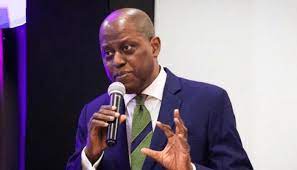Nigerians spent about $98.7 billion in foreign exchange (FX) for education, healthcare and Personal Travel Allowances (PTAs) between years 2010 and 2020 even in the face of dwindling FX earnings by the country during the period.
The Governor of the Central Bank of Nigeria (CBN), Dr. Olayemi Cardoso, who made this disclosure in his speech delivered during the Sectoral Debates by the House of Representatives on Tuesday, linked the humongous expenditures partly to the current depreciation of the Naira and harped on the need for the country to increase exports to stability the national currency in the FX markets.
The banker, who substantiated his claims with the Balance of Payments Statistics of the apex bank, specifically disclosed that between 2010 and 2020, Nigeria’s foreign education FX expenses totaled $28.65 billion while the cost of medical treatment overseas stood at about $11.01 billion.
In addition, the governor told the lawmakers that during the decade, official travellers spent a total of US$58.7 billion on Personal Travel Allowances (PTAs), with the apex bank disbursing $9.01 billion for personal foreign travels between January and September 2019.
Cardoso, who reeled out the rising numbers of Nigerian students studying in foreign countries and others who embarked on medical tourism during the period, lamented that the FX expenses in the 10-year period surpasses the total current foreign exchange reserves of the CBN.
According to him, mitigating a significant portion of the rising FX demand over the years could have resulted in a considerably stronger Naira today.
He projected that given the substantial demand for education, healthcare, professional services, personal travel, and similar needs, the exchange rate would continue to face ongoing pressure and advocated the need for improved export earnings for the country even as he expressed optimism that current monetary and fiscal reforms would impact on the FX rate of the Naira.
While assuring the lawmakers of the commitment of the apex bank to build confidence in the Nigerian economy through the maintenance of stability in consumer prices and the foreign exchange market, Cardoso maintained that the task of stabilizing the exchange rate, while an official mandate of the CBN, would necessitate efforts beyond the bank and indeed to an attitudinal change of all our citizens.
In his concluding remarks, the apex bank governor promised: “My team and I are dedicated to refocusing the Bank by giving primacy to price stability. We also aim to build confidence in the Nigerian economy through the maintenance of stability in consumer prices and the foreign exchange market.
“We are aware that the twin challenges of inflation and exchange rate depreciation on our economy are daunting, however, they are not insurmountable.
“Monetary policy actions are sometimes inhibited by transmission lags, nonetheless, it is expected that the policy measures implemented by the Bank will permeate the economy in the short- to medium-term.
“Inflation pressures may persist, albeit temporarily, but are expected to moderate significantly by Q4 2024. Exchange rate pressures are also expected to reduce with the smooth functioning of the foreign exchange market, he added.






